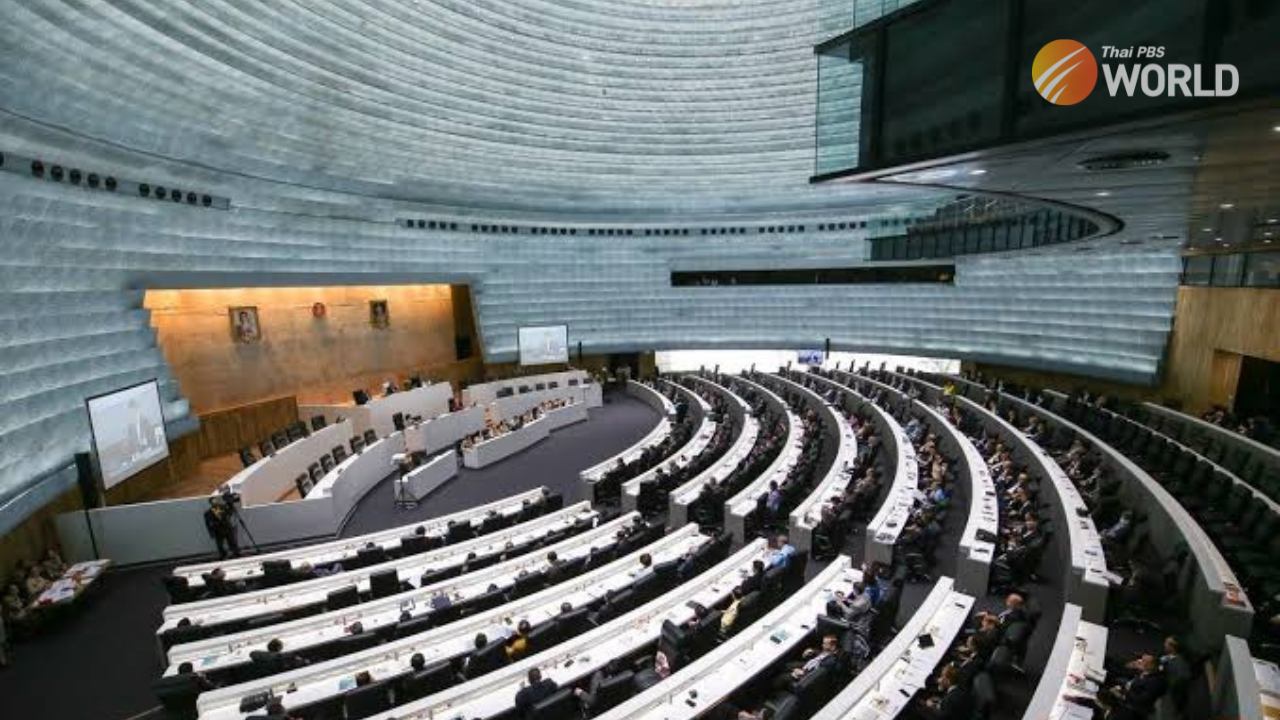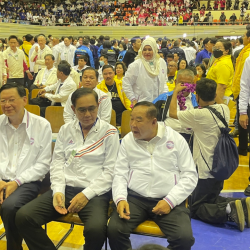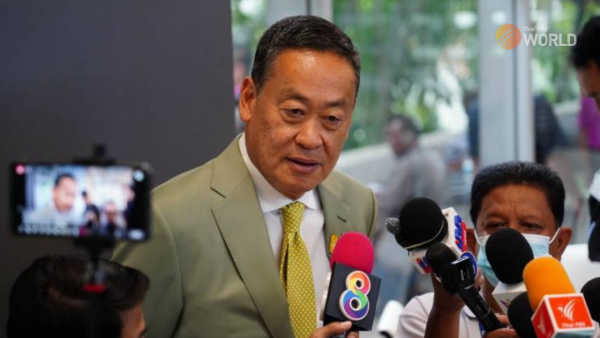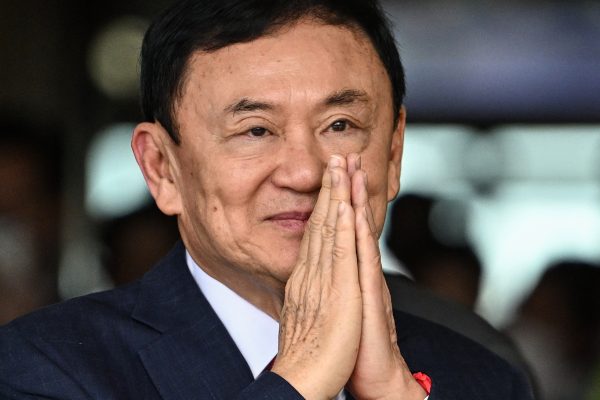Strategies, betrayals and backroom deals as Thai election race begins

Registration of constituency candidates nationwide on Monday (April 3) marks the official start of the May 14 general election, as candidates and their parties will now have to comply with electoral law.
The national vote was called after Prime Minister Prayut Chan-o-cha dissolved the House of Representatives on March 20, just three days before the Lower House completed its four-year term.
The Election Commission has announced it is ready to organize the five-day candidate registration, which starts on Monday and ends on Friday.
Election officials held final rehearsals over the past weekend to register candidates contesting for 500 MP seats – 400 from constituencies and 100 from the party list. Candidates and parties have been cautioned they will be subject to electoral law and penalties once candidates are registered.
Fierce battle ahead
The election is shaping up to be a fierce race between major political parties from the rival camps – the current coalition government and the opposition – but also between those within the same camp.
It is natural for parties to target rivals from the opposite camp. But analysts reckon that both conservative and liberal parties will also be forced to battle their allies for votes from supporters within their own camps. These voters tend to choose among parties that reflect their political beliefs, with only a small chance of them voting for a party from the rival camp.
Politicians from the opposition’s main parties, Pheu Thai and Move Forward, are attempting to persuade supporters of the so-called democratic camp to vote only for their party to boost their chance of forming the next government.
Eyeing a landslide victory
Pheu Thai is aiming at a landslide election win by clinching up to 310 seats in the 500-member House of Representatives, to form a single-party government. Key party figures including leader Cholnan Srikaew are urging liberals to vote for Pheu Thai as a strategic move to ensure the “pro-democracy” camp wins control of the government after the election.
Pheu Thai last ruled the country in 2014, before its government was overthrown in a coup led by General Prayut, who was then the Army commander-in-chief.
The campaign by its fellow opposition party has apparently dissatisfied Move Forward, which is seeking to join the next government after four years in opposition. Recent election rallies have seen Move Forward politicians question Pheu Thai’s claim of being pro-democracy given that Move Forward is reportedly wresting votes away from Pheu Thai’s red-shirt support base.
Move Forward MP Amarat Chokepamitkul said recently that her party was the “only genuine spearhead of the democratic camp remaining in Parliament”. She also accused “the party aiming to win a landslide” of having a secret deal to form the next government with certain parties they called undemocratic.
Rumors are swirling that Pheu Thai has done a deal with the ruling Palang Pracharath Party to share power after the election.
Thinly veiled attacks
The ruling coalition is also not free from attacks and infighting aimed at attracting support from conservative voters.
Palang Pracharath appears ambitious to woo votes away from General Prayut, who was the party’s sole prime ministerial candidate at the last election in March 2019 but is now set to become a PM candidate for the one-year-old United Thai Nation Party at the upcoming poll.
Thanks to Prayut’s popularity among conservative voters, United Thai Nation is expected to gain a large proportion of the 8.4 million votes that helped Palang Pracharath win the second-highest number of seats in the previous election.
General Prayut is known as a brother-in-arms of Palang Pracharath leader and Deputy Prime Minister Prawit Wongsuwan.
The PM’s “big brother” once claimed that he set up the party simply to help Prayut, who was then leading a post-coup junta, to achieve his dream of “completing his mission” beyond the 2019 election.
Going separate ways
Decades-long close ties between the two former Army chiefs soured after Prayut made it clear in December that he would leave the party that had helped him extend his rule. During the following months, Prawit issued six open letters offering himself as an alternative to lead the country out of the prolonged political conflict. Without naming names, Prawit’s letters appeared to compare himself favorably with Prayut while distancing himself from the former coup leader and junta chief.
On Saturday, Prawit declared on Facebook that he would be Palang Pracharath’s top candidate on its party list so that he can be a prime minister elected by the people.
“If I don’t contest the election, how can I be sure that people would choose me? It could be that voters elect other people [in the party] and I happen to benefit without putting myself up as a choice for voters,” Prawit said.
The remark seemed to be thinly veiled criticism directed at Prayut, who opted not to run as a party-list candidate of United Thai Nation. When asked why, Prayut simply replied he had a “personal reason” for his decision.
Adopting different strategies
Prayut is portrayed by his party strategists as the strongest and best choice from the conservative camp to counter threats to national security and foil the return to power of corrupt politicians. Recent opinion polls show his popularity has climbed to third highest overall – but highest among leaders of the coalition parties. Meanwhile Prawit’s popularity rating remains firmly in the lower half of the rankings.
Parties have devised different campaign strategies to win the post of PM – some are going with a sole candidate while others plan to nominate up to three, as allowed by the Constitution.
But the current charter does not require that a prime minister be an elected MP. At least three PM candidates reportedly have opted not to contest in the party-list election – Prayut, and Pheu Thai’s Paetongtarn Shinawatra and Srettha Thavisin.
Among major parties set to name a sole PM candidate are Palang Pracharath (Prawit), the Democrat Party (Jurin Laksanawisit), and Bhumjaithai (Anutin Charnvirakul).
Why foreign policy takes a backseat for Thai political parties
Forming the next government
Analysts expect Pheu Thai to win the most MP seats in the election but reckon its goal of a landslide victory may be farfetched.
Pheu Thai needs to negotiate fast with other parties to gather a House majority, or it will lose the chance to lead a coalition government, as happened after the election four years ago. Back then, it was Palang Pracharath that managed to form a coalition with most MPs and win the vote to get its PM candidate elected with majority support from both Houses.
Under the 2017 Constitution’s transition clause, the 250 senators can vote alongside 500 MPs in selecting the prime minister for the last time at this election – unless that power is extended via constitutional amendment.
Certain coalition leaders recently suggested that any alliance that manages to gain a House majority should have the right to form the next government regardless of votes won.
Bhumjaithai is expected to gain the most MP seats among the current coalition parties, so its leader Anutin may get the top political job in a windfall. Observers suspect he made a deal with Prawit for a future coalition during their recent meeting. Some reports said Prawit wanted Prayut to be excluded from that future arrangement.
Rumors also spread of a secret deal between the ruling party and Pheu Thai to form a new government, with Prawit serving as prime minister. The rumors were dismissed by key figures of the core opposition party, including its patriarch Thaksin Shinawatra, but a senior Palang Pracharath executive said it would become clear after the election if there was such a deal.
These possibilities and others should not be ruled out given Thai political parties’ loose ideological allegiances coupled with their unbridled desperation to win power in government.
Some partners in the current coalition may end up forging a new alliance with Pheu Thai, which is eager to regain power after an eight-year absence from government. Move Forward has fewer choices than Pheu Thai after it ruled out the possibility of working with both Palang Pracharath and United Thai Nation after the election.
By Thai PBS World’s Political Desk






